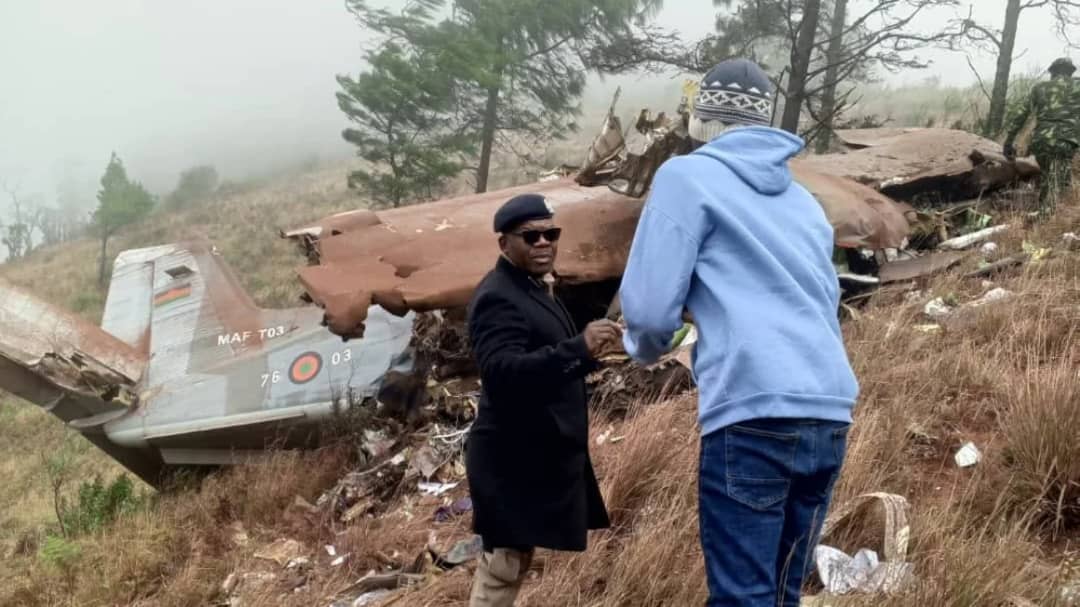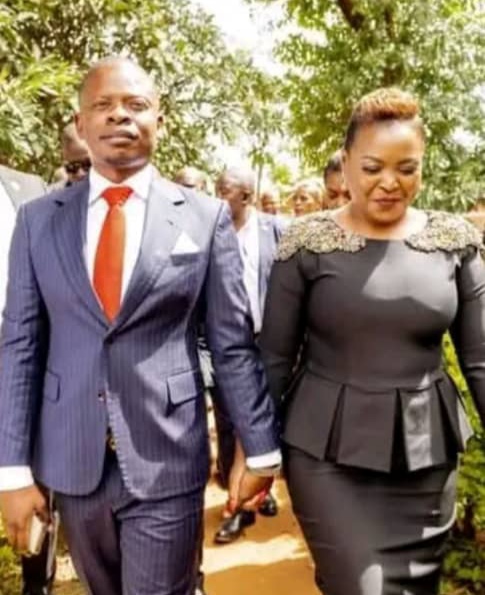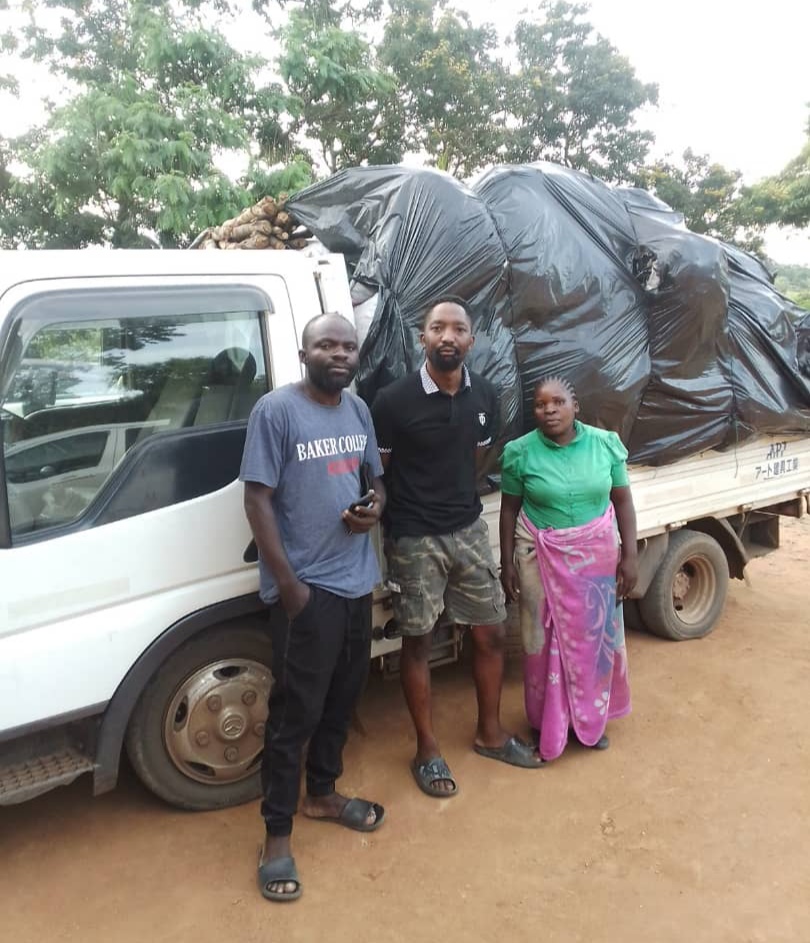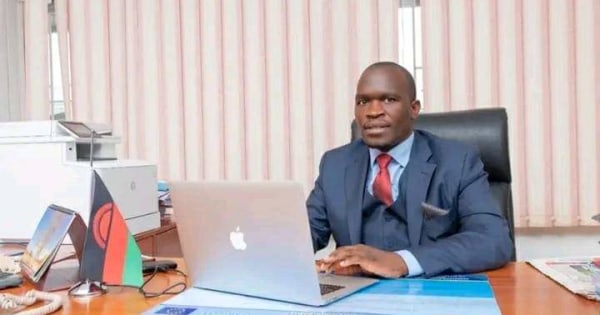On Chilima’s Plane Crash and the recent Commission of Inquiry Report: Exclusive interview with Twink Jones Gadama
By Burnett Munthali
Good day, Jones. It’s a pleasure to have you with us today. We deeply appreciate your willingness to share your thoughts on the tragic plane crash involving Vice President Saulos Chilima and the subsequent Commission of Inquiry report. As a highly regarded social commentator, your perspective will be invaluable in helping us navigate the complexities of this incident and its broader implications for Malawi’s political landscape and national security. The crash and the findings from the Commission have raised significant questions about accountability, transparency, and the safety of our political leaders. Today, we aim to hear your take on these important issues and explore the potential for real change in the way these matters are handled in the future. Let’s start by hearing your initial thoughts on the crash and the inquiry report.
Questions
1. Jones, when the news broke about the tragic plane crash involving Vice President Saulos Chilima, what was your first reaction? How did it impact you personally?
My initial reaction to the news of the plane crash was utter shock and disbelief. It was like a punch to the gut, leaving me winded and wondering what had just happened. Personally, it was a sobering reminder of the fragility of life and the importance of accountability.
2. From your analysis, what were the primary takeaways from the Commission of Inquiry’s findings, especially in terms of public trust in the safety of government officials?
From my analysis, the Commission of Inquiry’s findings were a whitewash, a blatant attempt to sweep the truth under the rug. The report’s emphasis on “pilot error” as the primary cause of the crash raises more questions than answers. It’s a classic case of “passing the buck” and avoiding accountability.
3. Do you feel that the Commission’s investigation was thorough enough, or do you believe that it missed key areas that should have been addressed?
Frankly, I don’t think the Commission’s investigation was thorough enough. They seemed to have missed key areas, such as the possibility of foul play or external factors contributing to the crash. It’s like they had a predetermined outcome and tailored their investigation to fit that narrative.
4. After reviewing the inquiry’s report, do you think that the government and the Commission have provided the Malawian public with the clarity they need regarding the crash, or are there still gaps?
The government and the Commission have failed to provide the Malawian public with the clarity they need regarding the crash. There are still too many gaps, too many unanswered questions. It’s like they’re hiding something, and that’s what’s fueling the speculation and mistrust.
5. In your opinion, how has the government responded to the Commission’s findings? Would you describe the response as appropriate and timely, or have there been shortcomings?
The government’s response to the Commission’s findings has been lackluster, to say the least. They’ve been dragging their feet, trying to downplay the significance of the crash and the report’s findings. It’s a classic case of “too little, too late.”
6. Do you suspect that external factors or foul play could have contributed to the crash, or do you consider it to be purely an accident?
I strongly suspect that external factors or foul play could have contributed to the crash. The fact that the Commission’s report seems to have glossed over this possibility raises serious red flags. We need a more thorough investigation, one that leaves no stone unturned.
7. Based on the Commission’s findings, what steps should the government take to guarantee the safety of high-profile officials in the future?
To guarantee the safety of high-profile officials in the future, the government needs to take a more proactive approach. They need to invest in better security protocols, better training for pilots and security personnel, and better communication systems. Anything less would be a dereliction of duty.
8. Why do you think transparency in cases like this is so crucial, and what is the significance of the public knowing the complete truth about this incident?
Transparency is crucial in cases like this because it’s the only way to build trust. When the government and the Commission are opaque, when they seem to be hiding something, it fuels speculation and mistrust. We need to know the truth, the whole truth, and nothing but the truth.
9. Do you think that political dynamics have influenced the way the investigation into the crash has been conducted or the way the findings are being communicated?
I believe that political dynamics have influenced the way the investigation into the crash has been conducted and the way the findings are being communicated. It’s a classic case of “politics trumping truth.” We need to rise above this, to put the truth above politics.
10. What is your view on how the Malawian public should hold officials accountable for their roles in such incidents, particularly when it concerns national security and safety?
The Malawian public needs to hold officials accountable for their roles in this incident. We need to demand answers, to demand transparency, and to demand justice. Anything less would be a betrayal of the public trust. We need to rise up and demand that our leaders prioritize our safety and security above their own interests.
11. What broader lessons do you think can be learned from this plane crash and the subsequent inquiry?
The broader lessons that can be learned from this plane crash and the subsequent inquiry are clear: we need better governance, better leadership, and better accountability. We need to put the truth above politics and prioritize the safety and security of all Malawians.
12. How has your perspective on Vice President Saulos Chilima’s leadership been affected by this tragedy and the subsequent inquiry report?
My perspective on Vice President Saulos Chilima’s leadership has been affected by this tragedy and the subsequent inquiry report. I believe that he deserves better, that he deserves the truth, and that he deserves justice.
13. Do you foresee any lasting changes in how government officials’ safety is managed, based on the Commission’s findings and recommendations?
I foresee no lasting changes in how government officials’ safety is managed based on the Commission’s findings and recommendations. The report seems to have been designed to maintain the status quo, to avoid rocking the boat. We need a more radical approach, one that prioritizes transparency, accountability, and justice.
14. In your opinion, what role can the media and civil society play in ensuring that future investigations and inquiries maintain integrity and transparency?
The media and civil society play a crucial role in ensuring that future investigations and inquiries maintain integrity and transparency. We need to keep pushing for the truth, to keep demanding answers, and to keep holding officials accountable.
15. Lastly, what message would you like to send to the Malawian public, particularly those seeking justice and accountability in light of the crash and its aftermath?
My message to the Malawian public is simple: don’t give up, don’t lose faith, and don’t stop demanding the truth. We deserve better, we deserve justice, and we deserve accountability. Let’s keep pushing for a better Malawi, a Malawi that prioritizes transparency, accountability, and justice. We need another Commission of Inquiry after the elections in September to get to the bottom of this tragedy.




